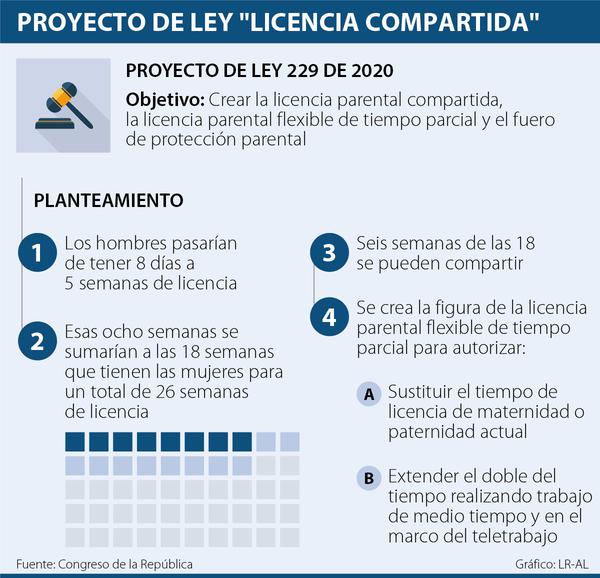How many days do they give for paternity leave in 2021
MEXICO CITY.- Many people don't know it, but working parents have the right to request paternity leave. The Federal Labor Law (LFT) recognizes the employer's obligation to grant paid leave.
This right has its origins in Convention 156 of the International Labor Organization (ILO). In this agreement, which dates back to 1981, employers are urged to take measures so that workers with family responsibilities can enter, remain and re-enter the workforce after a leave of absence.
It also prohibits ending the employment relationship based on family responsibilities. In the Mexican case, this fraction has been in Mexican law since 2012 and was reformed in 2018.
Article 132, section XXVII Bis, of the LFT establishes the employer's obligation to grant a paid paternity leave of five working days to men who work at the time their child is born. Similarly, in the case of the adoption of a child.
The legislation indicates that the five days are counted from the day of the baby's birth or when the adopted minor is received. In case of not receiving the permit, the worker must contact the Federal Attorney for the Defense of Labor (Profedet) to file a complaint.
Despite progress, our country is lagging behind in this area: on average, the nations of the Organization for Economic Cooperation and Development (OECD), of which Mexico is a member, average 8.1 weeks of paid paternity leave Of salary.
The importance of paternity leave
According to the UNICEF report Are Rich Countries More Family-Friendly?, paid paternity leave helps fathers bond with their sons and daughters, contributes to the healthy development of infants and children, in addition to reducing maternal depression and closing the gender equality gap.

This same study reveals that even when parents are offered paid leave, many do not take it. According to Runa, these are some of the benefits of paternity leave that future fathers should know about:
Paternity leave is a right. Since 2012, paid paternity leave has been included in the LFT. Working parents are entitled to five days of leave from the birth of their son or daughter or when they receive the minor, in the case of adoption.
Close the gender gap. In Mexico, maternity leave is 12 weeks and, like paternity leave, is well below the average figures for OECD nations. During this period, women have to worry about their recovery from childbirth or caesarean section, in addition to the care of the newborn. A broader paternity leave can promote co-responsibility between men and women in the upbringing of children.
More motivated employees. Granting more days than the mandatory paternity leave can help the worker feel calmer, so that he can support parenting tasks and be less pressured. In addition, in this way, the collaborator can return more motivated and focused on her activities.
Strengthening and confidence of the team. Supporting the employee in this important stage of his life, in addition to having a positive impact on productivity, can also help generate more commitment and trust in the work team. Supporting a team member in these circumstances can strengthen the sense of belonging of the other collaborators.
We recommend you
Women could have free access to menstrual hygiene products
The first birth certificate could be free, if this proposal is approved
The president will no longer have access to the secret game, what is it about?







